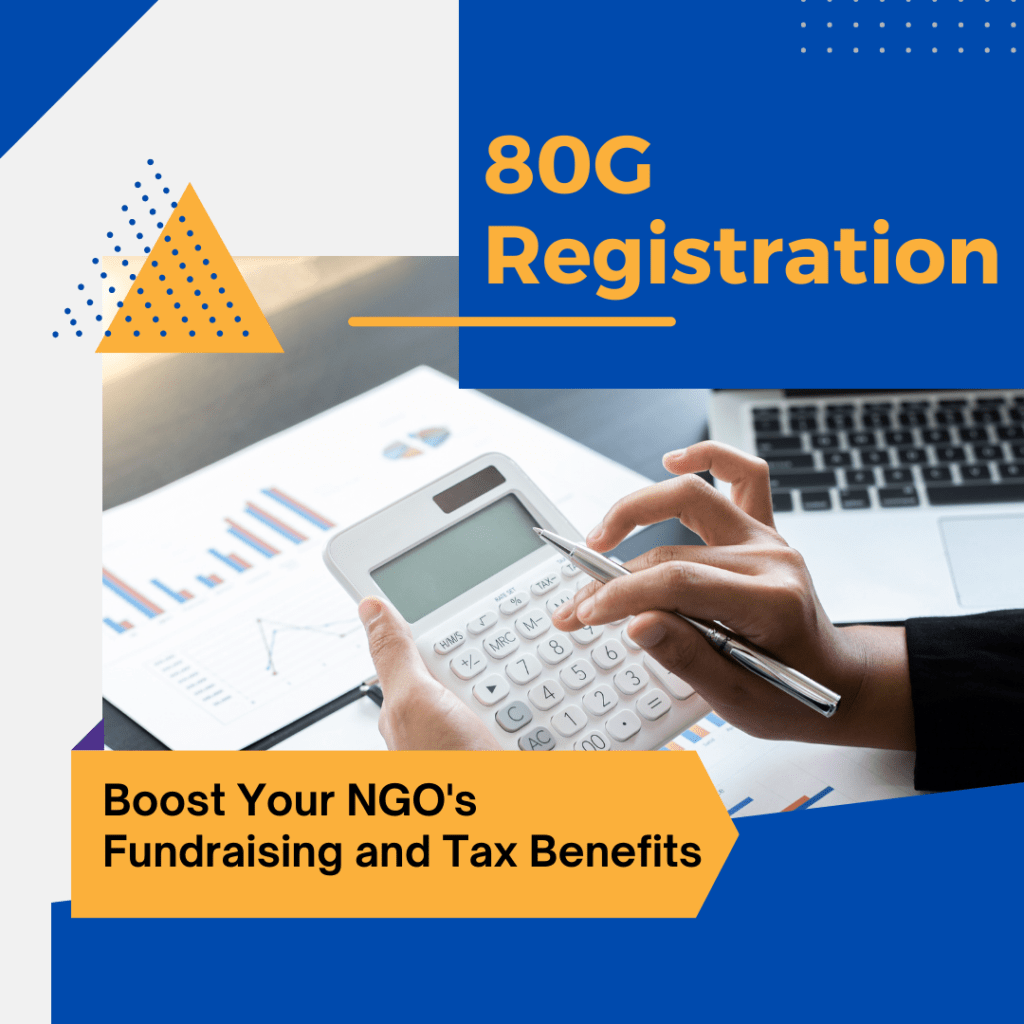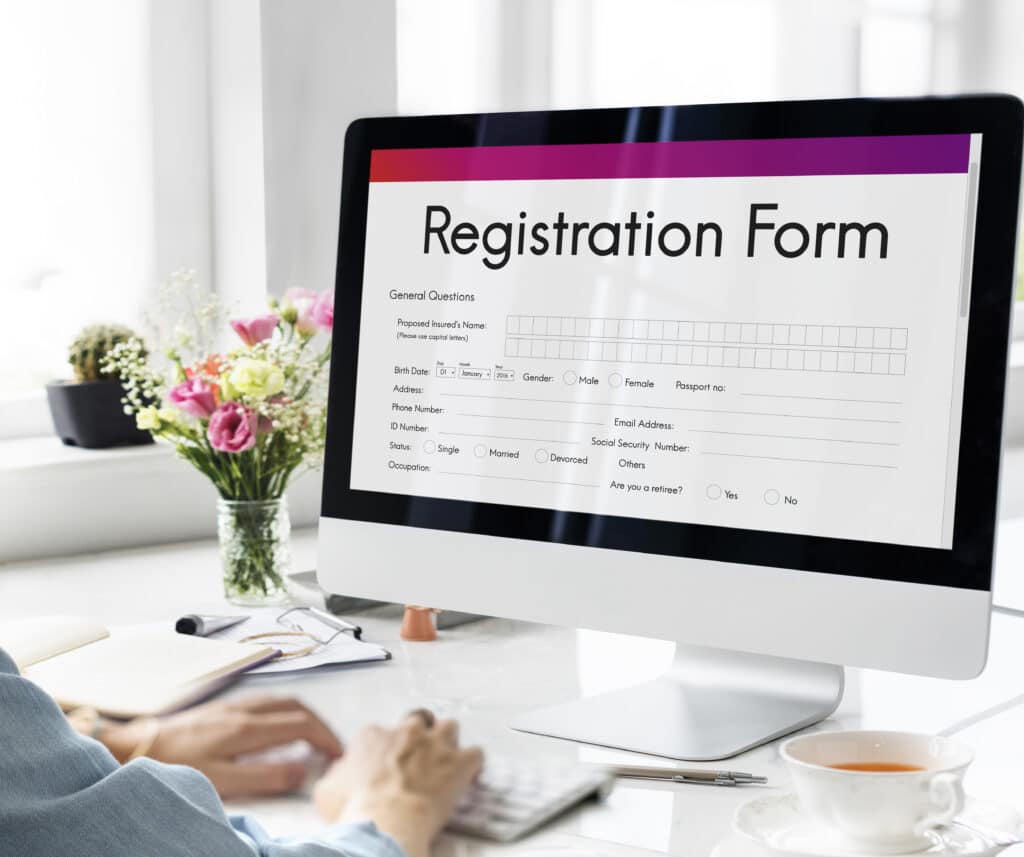80G Registration: Boost Your NGO's Fundraising & Tax Benefits
Are you looking to register your NGO under section 80G of the Income Tax Act? 80G registration is a valuable opportunity for your organization to receive tax-deductible donations and attract more donors. Don’t miss out on this valuable opportunity to boost your NGO growth and impact. To Register your NGO under 80G Contact us today.
Request for Call Back
- All India Service
- Easy Onlie Process
- 24*7 Hours Customer Support
What is 80G Registration?
The 80G registration is a provision under the Income Tax Act of India that allows donors to avail tax benefits on donations made to NGOs, charitable trusts, or Section 8 companies. This registration is issued to a non-profit organization by the Income Tax Department, with the objective of encouraging more donors to contribute funds to these organizations. Donors can claim deductions of up to 50% or 100% of the donated amount, depending on the category of the charitable institution.
This registration enhances the credibility and transparency of charitable organizations, making them more appealing to potential donors and enabling them to raise funds more effectively. Additionally, 80G registration can make NGOs eligible for government funding and other benefits. Obtaining both 12A and 80G registration can provide further tax benefits and exemptions for NGOs, making them exempt from paying taxes for their entire lifetime. Therefore, 80G registration is a valuable opportunity for NGOs and charitable organizations to receive tax-deductible donations and attract more donors.

Eligibility for 80G Registration:
To be eligible for 80G registration, an NGO must meet the following criteria:
- Registered NGO: The NGO must be a registered trust or society under the Indian Trusts Act, 1882 or the Societies Registration Act, 1860.
- Align with Charitable Purposes: The operations of the NGO should fit within the concept of “charitable purposes” as defined in the Income Tax Act. This often comprises efforts connected to education, healthcare, poverty assistance, religious advancement, and other socially beneficial undertakings.
- NGO Spending Cap: The NGO must spend at least 85% of its income on charitable activities. This means that only 15% of the NGO’s income can be used for administrative expenses, such as salaries and rent.
12A Registration: Prior to applying for 80G registration, the NGO must have obtained 12A registration. This registration grants income tax exemption to the organization.
80G Registration Fees
Pricing Summary
For 80G Registration
-
Application filing for 80g Registration
-
Issuance of 80G Registration Certificate

Documents required for 80G Registration
To register your NGO under section 80G of the Income Tax Act, you need to submit a set of documents to the Commissioner of Income Tax. These documents are crucial for the successful processing of your application. Here are the key documents required for 80G registration:
- Registration Certificate of Trust/ Society/Section 8 Company
- Memorandum of Association (MoA)/ Trust Deed
- PAN Card of Trust/ Society/ Section 8 Company
- Members/ Directors/ Trustees and authors Documents – Passport Size Photograph, PAN Card, Adhaar Card, Email ID and Mobile Number
- Business Address Proof: Provide proof of your organization’s business address.
- 12A & 80G Registration Provisional Certificate ( Self Attested Copy)
- Society/ Trust/ Section 8 Email ID and Office Address
- Previous 3 year Audit Report in case of old NGO
80G Registration Process
80G registration is a valuable opportunity for NGOs and charitable organizations to receive tax-deductible donations and attract more donors. To obtain 80G registration, the organization needs to follow a specific process. Here is a comprehensive guide to the 80G registration process:
- Eligibility Check: The organization must ensure that it meets the eligibility criteria for 80G registration, such as having a legal structure, being registered and recognized by the Income Tax Department, and maintaining proper books of accounts.
- Document Preparation: The organization must prepare the necessary documents, such as Form 10G, certificate of incorporation, memorandum of association (if applicable), trust deed (if applicable), no objection certificate, PAN card copy, utility bills, KYC documents, passport-size photographs, business address proof, and incorporation certificate.
- Application Submission: The organization must submit the application and documents to the Principal Commissioner or Commissioner of Income Tax.
- On-the-Premise Inspection: After submitting the application and documents, an on-the-premise inspection is typically conducted by the Income Tax department.
- Approval and Certificate Issuance: If approved, the organization will receive the 80G certificate, which allows donors to claim deductions on their taxable income based on the amount donated.
- Renewal and Compliance: 80G registration may require renewal, and organizations must comply with the regulations to continue availing the benefits
Validity of 80G Registration Certificate
The 80G registration certificate is typically issued within a specific timeframe. According to the information available, the provisional registration under 80G is granted for a period of 3 years. After this period, the registration needs to be renewed. The registration once granted shall be valid for three years from the Assessment Year from which the application was made.
The application for renewal of such new registration needs to be submitted at least six months prior to the expiry of the validity period or within 6 months from the commencement of activities, whichever is earlier. Therefore, the 80G registration certificate is initially issued as a provisional registration for a period of 3 years, and subsequently, the organization needs to apply for renewal to continue availing the benefits
Benefits of 80G Registration
The benefits of 80G registration are significant for NGOs and charitable organizations. Here are the key advantages:
1. Tax Deductions:
Donors can claim deductions of up to 50% or 100% of the donated amount, depending on the category of the charitable institution. This tax benefit encourages individuals and corporations to contribute to organizations with 80G registration, as it assures them that their donations will be used for genuine charitable purposes.
2. Credibility and Transparency:
Being registered under Section 80G enhances the credibility and transparency of charitable organizations, making them more appealing to potential donors. This registration provides access to a larger pool of donors and enables non-profits to raise funds more effectively.
3. Government Funding and Exemptions:
80G registration can make NGOs eligible for government funding and other benefits. Additionally, obtaining both 12A and 80G registration can provide further tax benefits and exemptions for NGOs, making them exempt from paying taxes for their entire lifetime.
In conclusion, 80G registration not only benefits the donors through tax deductions but also enhances the organization’s credibility, transparency, and access to funding, ultimately supporting their philanthropic endeavors
Frequently Asked Questions
For new 12A and 80G registrations, they can be filed immediately upon incorporation.
We can apply for 12A and 80G soon after the Trust is registered. If in case the customer is applying after a year or two then their ITR is required.
The process is 100% online. So, it doesn’t require your physical presence at any stage. Relax in the comfort of your home while we take care of everything.
Yes, you can apply for them separately in which case you have to apply for 12A first. However, doing them together is easier.
Earlier, 80G and 12A registrations were valid for the lifetime of an organisation. Now, in the case of provisional registration, the validity of 80G and 12A registrations has been kept at 3 years, or for 3 years from the commencement of activities, whichever is earlier and, in case of re-validation, the validity is 5 years.
Are you looking for 12A and 80G Registration?
Don't hesitate! Our Legal Advisors are readily available! Give a call or chat with us. We are available 24*7 Hours
